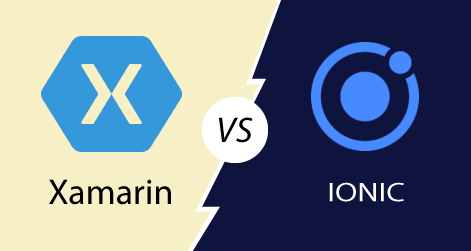Cross platform mobile app development has gained a lot of traction recently. Thanks to attributes like reusable codes and ability to target multiple platforms, it usually leads to favorable outcomes.
Like almost everything in life, there are both upsides and downsides to cross platform mobile app development. This makes it suitable for some but not for all.
Every business is different to some extent and not identical to other businesses, even if they are in the same category. And each business has their own path to success.
That is why if you are in the business of developing apps, you must first determine whether to go for cross platform mobile app development or native mobile app development.
There is no doubt that cross platform mobile app development has its positive aspects. However, it isn’t the best course of action for every company.
Just as cross platform app development is a startup’s best friend, there are other aspects that make it not so great for every type of business model. Let’s take a look at some of them.
Performance Dip

Performance is one of the biggest bars that is used to measure the quality of both the app and the makers of that app. If you produce a high-quality app that performs admirably, you will attain a lot of praise and trust.
Cross platform mobile apps are lacking behind (by some margin) to native mobile apps. Cross platform mobile app development produces apps that suffer from a lack of optimization.
Native apps are solely created for a specific platform. They are tweaked and re-tweaked to ensure that it performs impeccably for that platform.
On the other side, cross platform mobile app development is designed to create apps that run on several platforms. If not done by an expert hand, it may impact efficiency and create sluggish codes.
A company that is focused more on creating high performing apps will benefit less from cross platform mobile app development.
It’s better to just focus on one platform and produce apps of superior performance. Unless of course your business model is aimed at hitting more targets and maximizing the chance of success.
Limited Tools and Features

Another reason why cross platform app development isn’t for everybody is that of its limitation in tools and features.
A great developer with the right tools can create magnificent and astounding mobile apps. But if he’s restricted, the final product will not reach the height it could’ve.
There are a number of tools available to developers. But it isn’t close to what is available for native app development. For example, there are some very powerful iOS app development tools.
Cross platform mobile app development has specific limited tools for specific frameworks that they can use. This, in turn, creates challenges for developers to build some specific or eye-catching features.
Furthermore, the integration of some feature may even create stability issues on the app. An app that suffers from stability problems will bomb in the market.
So, what does your business model favor?
Should you go for a versatile set of features and try to be the best in your platform or go for some specific features available in that category and play safe?
User Experience Challenges

User experience (UX) is crucial to the success of an app. It is the experience of the user that determines its repeated use and goodwill. In a competitive market such as it is for mobile apps, the UX can either boost your app or let it free fall.
If your aim is to provide optimal user experience than the best thing would be to avoid cross platform mobile app development.
The variables associated with different operating systems, displays and functionalities of these platforms create a barrier. This barrier prevents developers from achieving that sweet spot between user interface and experience.
Since every platform has its unique style and features, creating an app that can uphold universal superior UX is very challenging for developers.
Users choose their specific platform because of everything it provides to the user. When applying the same design across all platforms, it results in unwanted app layout. Sometimes this can drive users away.
Offline Mode

The Internet has thrust our civilization to heights. We are able to gather information, watch videos and even read this article no matter where we are. It is also the catalyst for a lot of things.
But being online isn’t always possible. Due to a variety of reasons sometimes you are forced to be offline .
What happens when you require the help of a specific app that can’t function without the internet?
The logical thing would be to look for an app that serves the same function but can operate even when you are offline.
Without internet, hybrid apps that are created by cross platform mobile app development process can’t operate. They are essentially websites that are modified to look and feel like a native app.
On the other hand, native apps can operate fully even when you are offline. There are a lot of users who prefer to have an app with offline capability. Users don’t want to have an app that might fail them in time of need.
In all fairness, hybrid apps make up for that by being able to provide quick and easy updates and connectivity. Also, there are many people who prefer them over native apps too.
Wrapping Up
New tools and additions to cross platform mobile app development has increased the value of it significantly. Given some time, we would surely see cross platform mobile app development as the way to go for all.
However, that time is not here yet. There are still some kinks that need to be worked out.
As of now, which route to take for developing apps is up to you and your business model. Cross platform mobile app development undoubtedly is great for many types of business. But now you know, it isn’t for every business out there.













